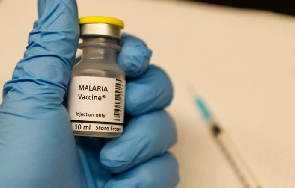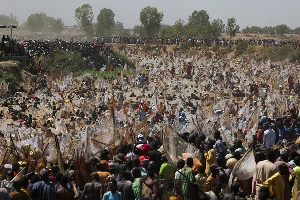Ghana has become the first country in the world to approve a new malaria vaccine - R21.
The vaccine has been described by the scientists who developed it as a "world-changer" citing its effectiveness in combating the disease.
According to the BBC, the Food and Drugs Authority, FDA, have assessed the final trial data on the vaccine's safety and effectiveness and have decided to use it.
The decision was based on trial data obtained from Burkina Faso where researchers say the drug had an 80% effectiveness rate - given as three initial doses and a booster dose a year later.
The FDA has approved the vaccine's use in children aged between five months to three years old.
Other African countries are also studying the data, as is the World Health Organization.
Further trial pending large scale use
A further trial is expected to be conducted on 5,000 children before large scale deployment is considered.
These had been expected to take place at the end of last year, but have still not been formally published. However, they have been shared with some government bodies in Africa, and scientists, the BBC report added.
Oxford researcher speaks on R1
In an interview with the BBC, Prof Adrian Hill, director of the Jenner Institute at the University of Oxford, where the vaccine was invented, said African countries are declaring: "we'll decide", after being left behind in the rollout of Covid-19 vaccines during the pandemic.
"We expect R21 to make a major impact on malaria mortality in children in the coming years, and in the longer term [it] will contribute to overall final goal of malaria eradication and elimination."
The Serum Institute of India is preparing to produce between 100-200 million doses per year, with a vaccine factory being constructed in Accra, Ghana.
Each dose of R21 is expected to cost a couple of dollars.
Adar Poonawalla, CEO of the Serum Institute, said: "Developing a vaccine to greatly impact this huge disease burden has been extraordinarily difficult."
He added that Ghana, as the first country to approve the vaccine, represents a "significant milestone in our efforts to combat malaria around the world".
Health News of Thursday, 13 April 2023
Source: www.ghanaweb.com













